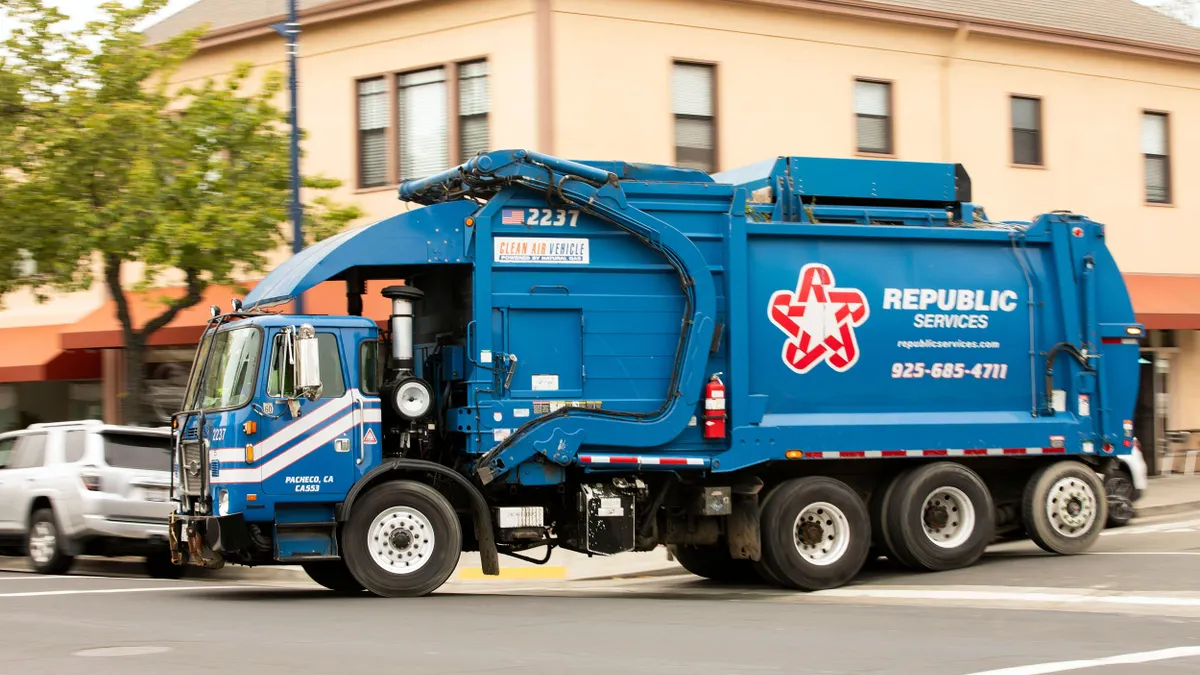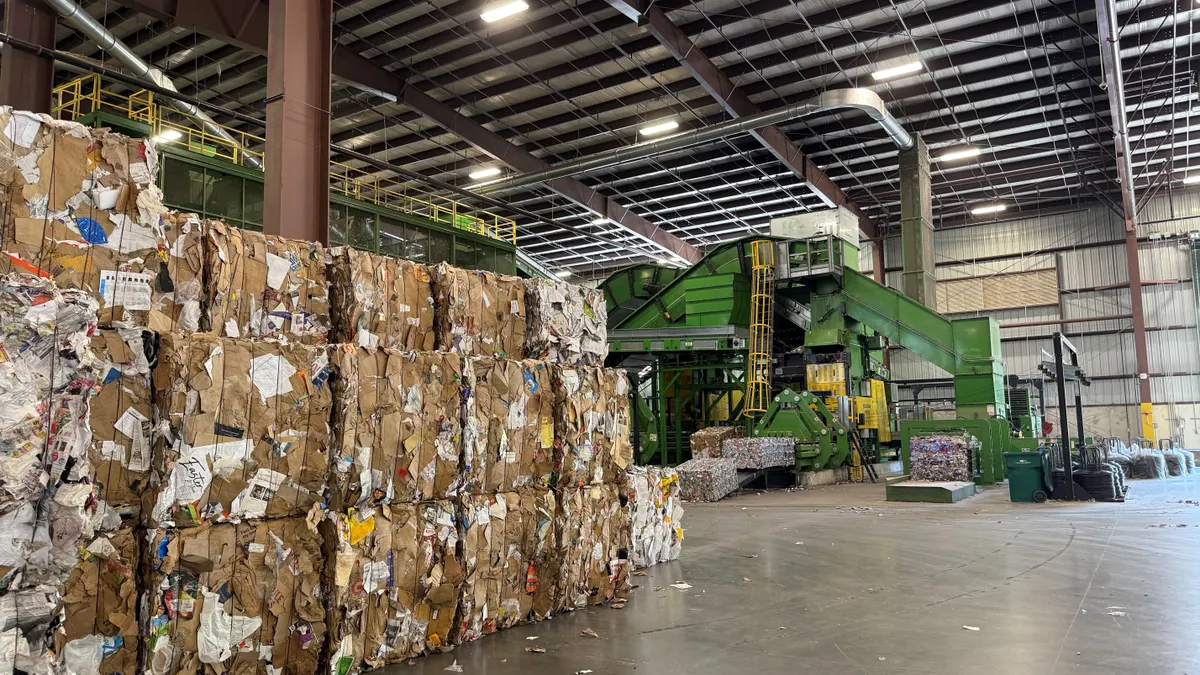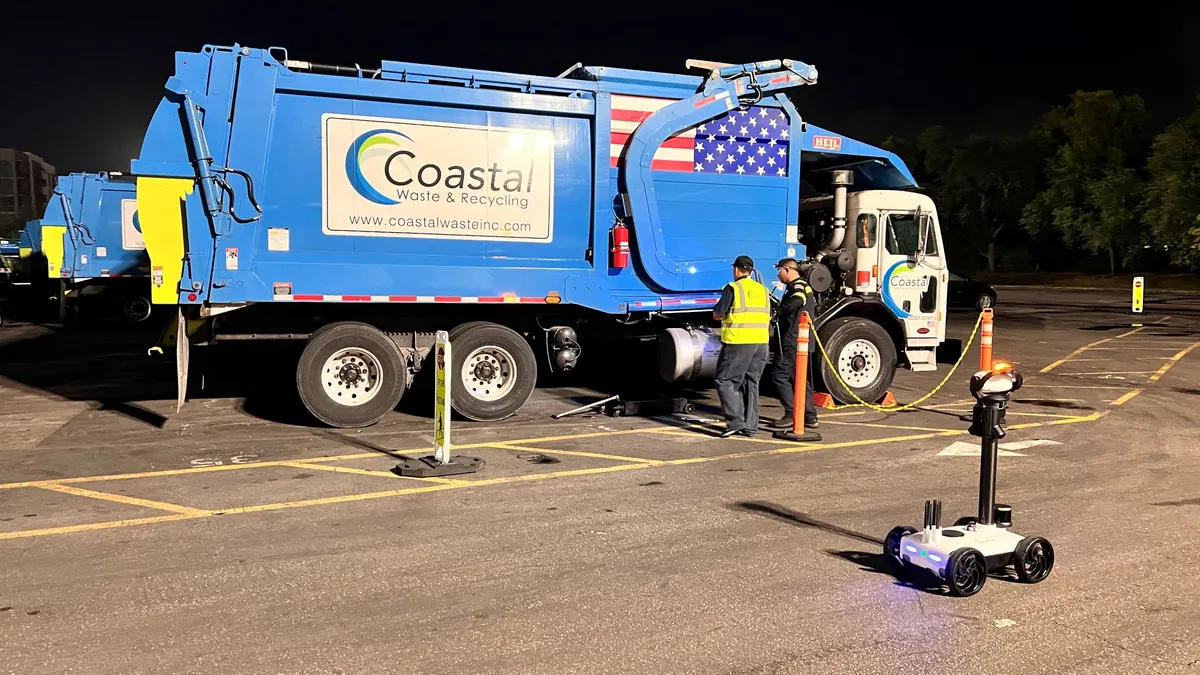The waste industry is cautiously optimistic about multiple openings to reverse a controversial Obama-era joint employer standard in the near future.
What started with an organizing drive by temporary workers at a Browning-Ferris Industries (BFI) MRF in California more than four years ago has since evolved into a national legal and legislative debate that extends far beyond the recycling industry. Supporters of the 2015 National Labor Relations Board (NLRB) joint employer decision on BFI are fearful that it may not survive the newly Trump-controlled board, let alone an upcoming legal decision or a Republican-controlled Congress. Opponents of the standard say that change can't come soon enough, and they are working to make it happen in the name of business growth.
The underlying question is what constitutes direct versus indirect control when it comes to employment relationships, and what level of responsibility either status puts on companies that could be considered joint employers. Critics of the current standard — set by the 2015 NLRB decision — say its definition of control is too open-ended. They describe this as creating uncertainty for employers working with staffing agencies, subcontractors and franchisees of all kinds.
"One of the reasons why the legislation is so important is that overturning an NLRB case could take a long time. I think that reevaluating the policy is likely to happen, but the question is when that would occur."

Kevin Kraushaar
vice president of government affairs and chapter operations
All of this could be addressed by the D.C. Circuit Court soon, when it announces a decision on the BFI case, prompted by the company's legal challenge to the 2015 NLRB decision. BFI is a subsidiary of Republic Services. The newly Republican-majority NLRB could also potentially vote to reverse the 2015 standard. In the meantime, attention is focused on a bill introduced in the House over the summer that could achieve similar or larger results. That bill, H.R. 3441 or the "Save Local Business Act," was passed out of committee Oct. 4.
In an Oct. 23 letter, the National Waste & Recycling Association (NWRA) urged House Speaker Paul Ryan to bring the bill to a vote. The letter, signed by NWRA President Darrell Smith, said this would give businesses a more clear understanding of their "legal obligations" and "fix a misguided policy by providing a smart and strategic solution to help businesses create jobs and increase economic growth." The current policy, according to Smith's letter, contains uncertainties that are hindering that growth.
Recently released third-quarter lobbying reports indicate that H.R. 3441 has been a legislative priority for the NWRA and the organization also confirmed this with Waste Dive earlier in October.
"It's seen as a major issue for our industry, because it does have an impact on the ability and the responsibility for hiring subcontractors," said Kevin Kraushaar, vice president of government affairs and chapter operations.
Kraushaar declined to offer many specifics on where this might be affecting industry businesses, aside from an example of potential subcontracting for services such as storm debris collection. He also mentioned franchises as another relevant area — though one not common in the waste industry. Kraushaar recommended talking to the International Franchise Association, a partner in NWRA's work on H.R. 3441, for more information.
That organization has also been lobbying on H.R. 3441 during the past quarter and helped create a new group, called the Coalition to Save Local Businesses specifically for this issue. Multiple attempts to schedule an interview with that group's executive director were unsuccessful. According to the coalition's website, its goal is to return to the joint employer definition in place before the NLRB's 2015 BFI decision, and prevent potential job loss created by what is described as a harmful policy. The site lists nearly three dozen association partners from other industries, along with various small business owners. The U.S. Chamber of Commerce has also been vocal with its support.
Smaller beginnings
For those involved with the original BFI organizing efforts and subsequent legal challenges in California, some amount of business reaction was expected. The level to which it has grown, however, was not.
"What has been surprising is the sort of national response, Congressional response. The number of times this issue has been taken up, and the number of hearings that have been held over the NLRB decision, that in our estimation was a modest clarification of the standard, and not the sort of radical shift that I think it’s been portrayed as," said Susan Garea, an attorney with Beeson, Tayer & Bodine, who has been involved in the BFI case since it began.
Garea said if H.R. 3441 passes, that could be more significant than the D.C. Circuit Court decision, because as currently written, the bill would establish a more narrow definition of joint employment under both the National Labor Relations Act and the Fair Labor Standards Act. The NLRB's 2015 BFI decision established a previously held common law standard as official policy, allowing for some interpretation of "indirect" control versus the "actual" standard in this legislation.
This distinction was originally centered on whether workers from the staffing agency Leadpoint, who chose to organize with Teamsters Local 350, should be recognized by BFI at a MRF in Milpitas, CA. The question of responsibility for these workers, or lack thereof, was also recently addressed in a living wage settlement between the City of San Jose and Republic Services. Though not directly related, the Teamsters view this as another example of the company utilizing temporary workers to avoid certain labor obligations.
"Employers will go to great lengths to shield themselves from responsibility for workers, and that’s exactly what these schemes do," said Doug Bloch, political director for Teamsters Joint Council 7.
The use of temporary workers at MRFs and other settings is not uncommon in the industry. With fluctuating volumes, and changing quality specifications, companies see a need to have flexible staffing. Some facilities exist where full-time employment is the only option, but that is rare, and on the whole, this practice is seen as acceptable. When asked, the NWRA declined to take a position on whether full-time versus temporary employment was more preferable.
"It's obviously a much broader issue of how the member companies are running their business. These are specialized situations where extra support is needed to fill various parts of various contracts, and they turn to staffing agencies and subcontractors on a fairly regular basis," said Kraushaar.
According to Garea and others, neither the 2015 NLRB decision or any other potential outcome of the varying processes it has set in motion are intended stop the use of temporary labor.
"There's no substantive outcome that's ever mandated that by the labor board," she said. "The idea that this restricts our ability to have a fluctuating workforce as needed is not the case."
Instead, she said, the issue at hand is whether those temporary employees have the right to organize and be recognized with some form of contract where they work.
Larger forces
Seeing any issue from the waste and recycling industry receive this much attention at the national level is rare. Though, according to labor organizers and policy analysts, that's not actually what's happening.
"It's become politically charged, not because of the waste industry, not because of Browning-Ferris. It's because of McDonald's," said Michael Harper, professor of law at Boston University.
Tied to the broader "Fight for $15" movement, the Service Employees International Union (SEIU) has been working to organize employees at McDonald's and other fast food chains in recent years. Because of that industry's franchise structure, it was seen as inefficient and time-consuming to organize at each location. A 2014 decision by the NLRB's general counsel said franchise employees would be allowed to sue McDonald's for labor violations, making it a joint employer and putting the corporation on defense. The situation has only escalated since.
Later that year, the same NLRB general counsel issued 13 complaints against multiple McDonald's franchisees and the company itself as franchisor. After the NLRB issued its 3-2 BFI decision in August 2015, reversing a 2013 decision that had classified the staffing agency Leadpoint as sole employer, the stakes were raised even higher.
In the view of Harper, and others, these forces are what drew the attention of groups such as the Chamber of Commerce and the International Franchise Association. In turn, their advocacy has attracted support among many Republicans in Congress. While a waste and recycling company may have been a catalyst in terms of the BFI decision, the industry is essentially now along for the ride.
Next steps
Since H.R. 3441 was passed 23-17 out of the Committee on Education and the Workforce earlier this month, discussion around it has been quiet. Getting it through the House is seen as possible. Thinner margins in the Senate, which have derailed larger legislation such as healthcare, passage in that chamber could be more difficult. Still, even with the potential for other outcomes from the D.C. Circuit Court or NLRB, this legislation is seen as the fastest option at the moment.
"One of the reasons why the legislation is so important is that overturning an NLRB case could take a long time," said NWRA's Kraushaar. "I think that reevaluating the policy is likely to happen, but the question is when that would occur."
A decision from the D.C. Circuit Court could be imminent, as oral arguments wrapped up in the spring. That outcome could go any number of ways and may not necessarily achieve the larger results that many in the business community are hoping for, depending on how narrowly the decision focuses on the BFI case at hand. A potential appeal for review by the Supreme Court is also possible.
"It's become politically charged, not because of the waste industry, not because of Browning-Ferris. It's because of McDonald's."

Michael Harper
Boston University law professor
Since President Trump's second pick was confirmed to the NLRB in September, the balance of that five-member body shifted to Republican control. Among the labor community this is concerning for a number of reasons, with joint employer definitions at the top of that list. Harper is confident that this will be more decisive than any court ruling.
"Regardless of whether they remand it, BFI is going to be overruled by the Trump board. I don’t think there's any question about that," he said. "That is probably the first thing, number one on their priorities."
Until all of this gets resolved, the California MRF workers who voted 73-17 to organize with Local 350 back in 2015 are without a contract, and the current joint employer standard is still being used by the Teamsters for organizing purposes in other parts of the country. The potential outcomes are being closely watched by many industries and are sure to elicit further debate in the months ahead.


















